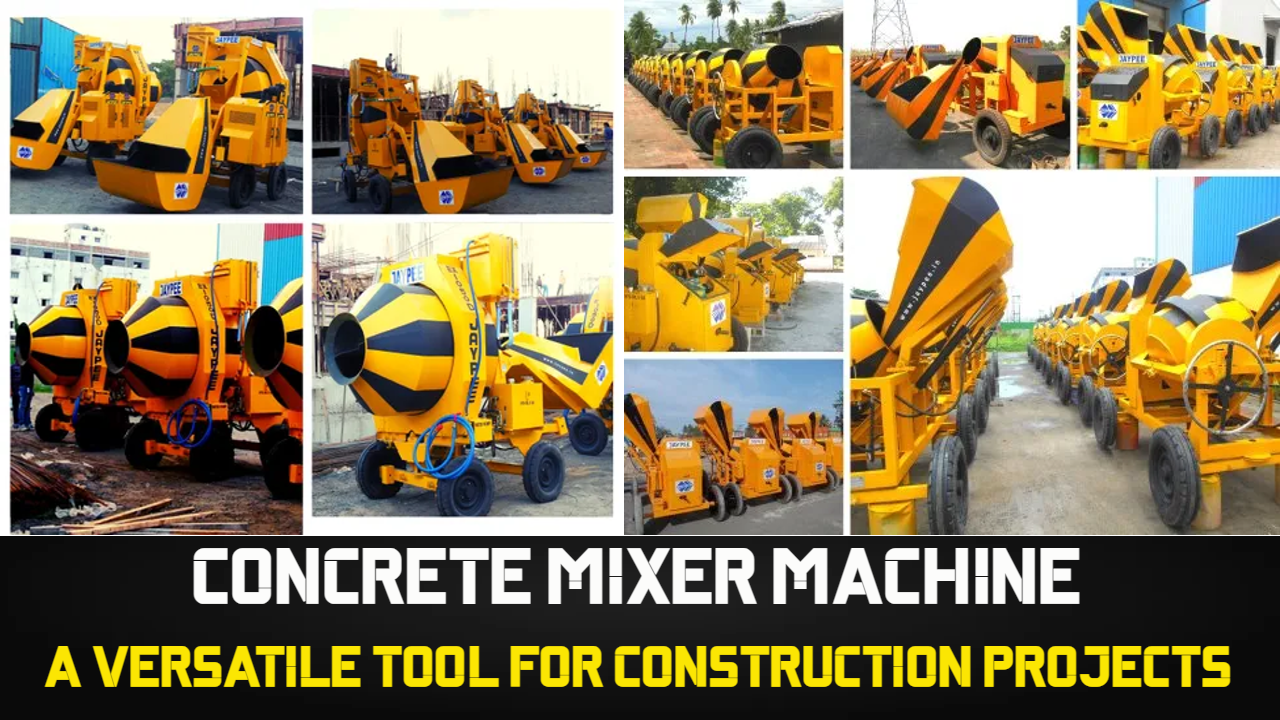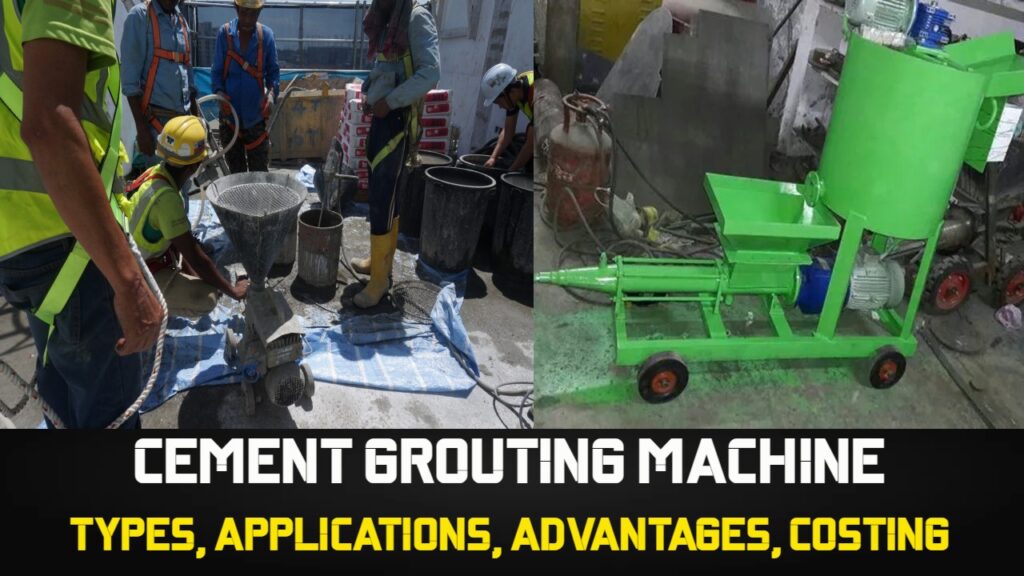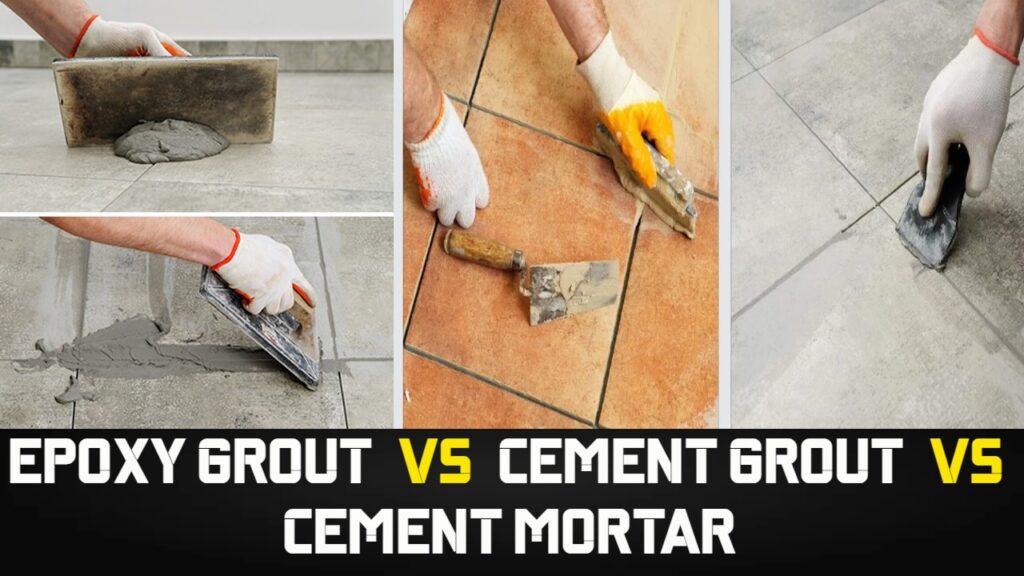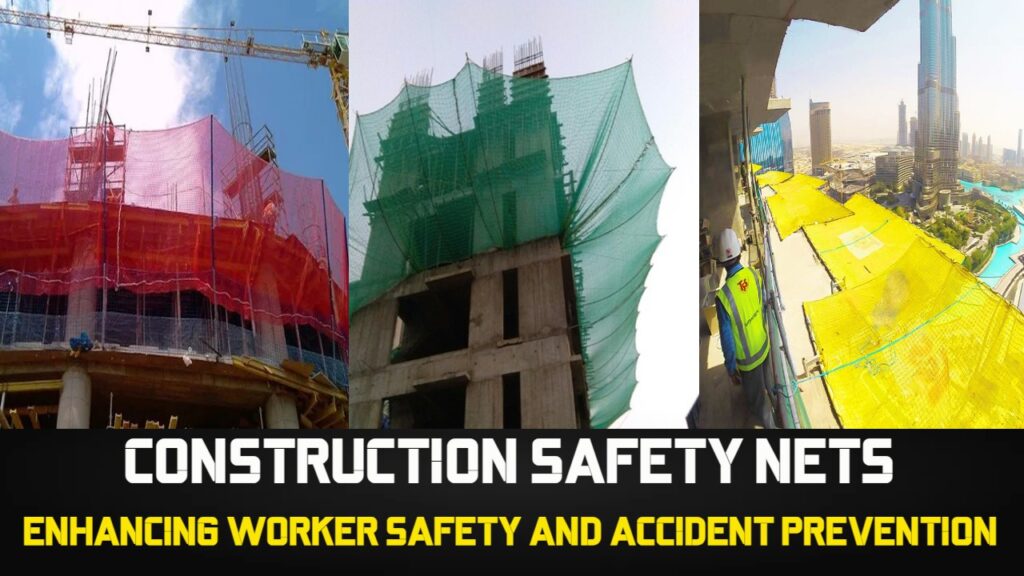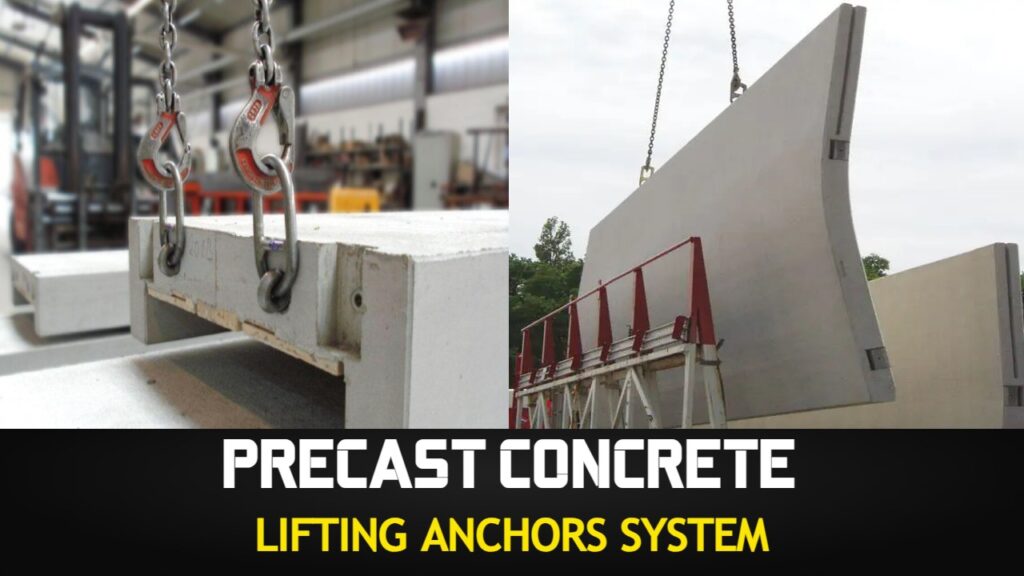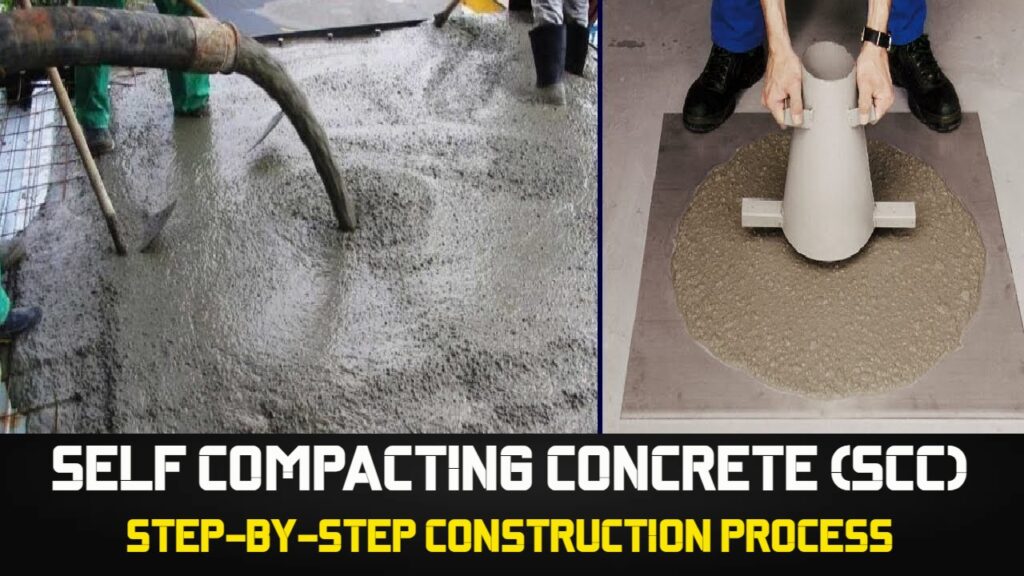Efficiency and productivity are crucial elements that may make or break a project in the world of construction. The concrete mixer machine is one key instrument that is used on building sites. This adaptable piece of machinery has transformed how concrete is mixed and has grown into a crucial tool in the building sector. In this post, we’ll examine the numerous functions, benefits, and important effects of concrete mixer machines on building projects.
Contents
- 1 Introduction
- 2 What is a Concrete Mixer Machine?
- 3 Types of Concrete Mixer Machines
- 4 Working Principles of Concrete Mixer Machines
- 5 Benefits of Using Concrete Mixer Machines
- 6 Factors to Consider When Choosing a Concrete Mixer Machine
- 7 Safety Precautions while Operating a Concrete Mixer Machine
- 8 Common Applications of Concrete Mixer Machines
- 9 How to Properly Maintain a Concrete Mixer Machine?
- 10 Conclusion
- 11 Frequently Asked Questions – FAQs
Introduction
Concrete is a robust and long-lasting substance that is needed for construction projects since they entail the production of numerous structures and infrastructures. By reducing the need for labor-intensive manual processes, concrete mixing equipment has made the process simpler. Assuring effectiveness, reliability, and quality in the manufacture of concrete, these machines have become a crucial component of the construction sector.
What is a Concrete Mixer Machine?
A concrete mixer machine is a tool made especially for mixing cement, aggregates, water, and additives for concrete components efficiently. It is made up of a spinning drum or many mixing shafts that are propelled by an electric motor, diesel engine, or even a power take-off from a tractor. Following the addition of the ingredients, the mixer rotates to guarantee thorough mixing, producing a homogenous mixture of concrete.
Types of Concrete Mixer Machines
Concrete mixer machines come in a variety of varieties, each suited to a particular project’s needs. Typical kinds include:
Drum Concrete Mixer
The most popular kind of concrete mixer is a spinning drum that combines the components for concrete. Depending on how the concrete is discharged, it can be further divided into tilting drum mixers and non-tilting drum mixers.
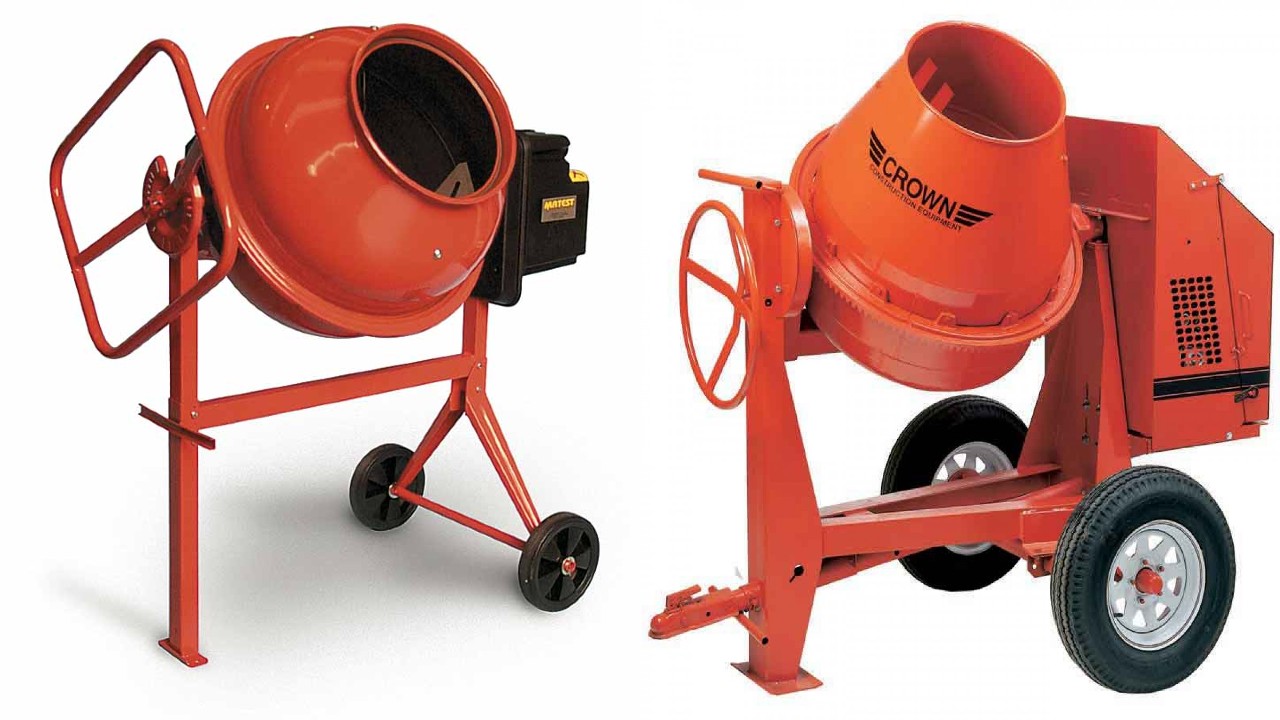
Twin Shaft Concrete Mixer
Twin-shaft concrete mixers mix the components of concrete effectively by using two horizontal shafts with overlapping paddles. They are suited for large-scale building projects and are noted for their quick mixing rates.
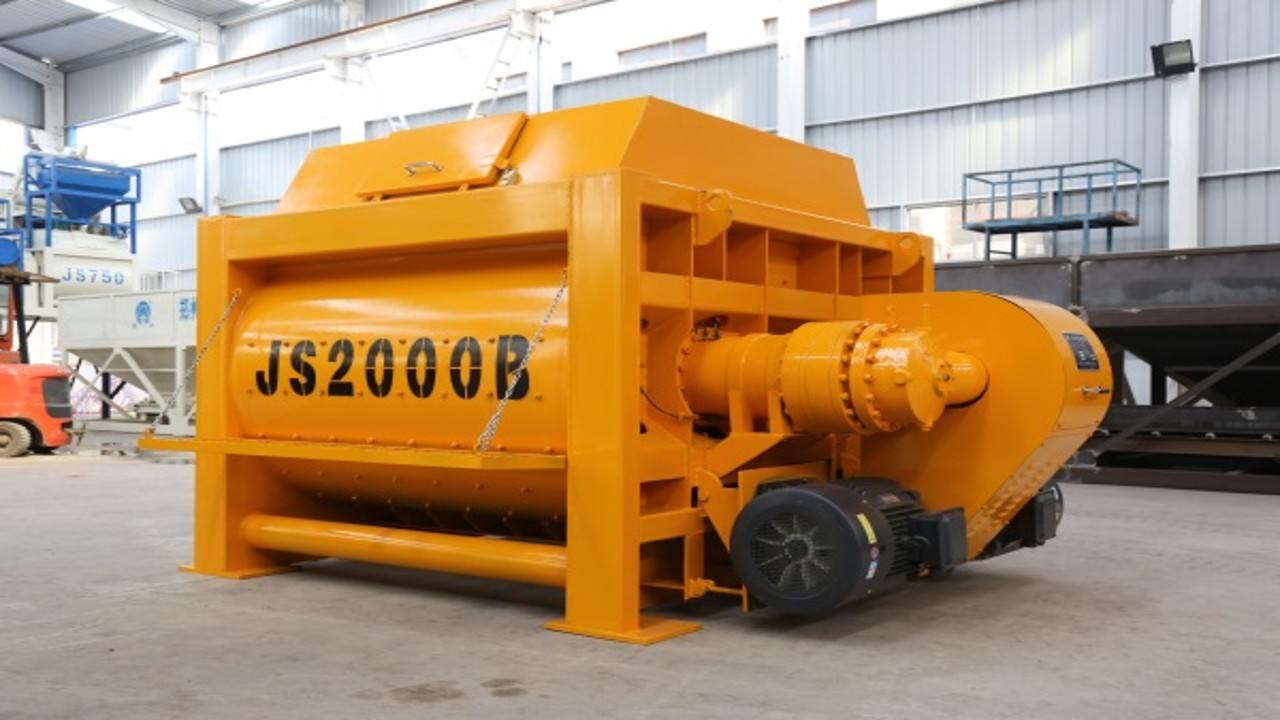
Planetary Concrete Mixer
The distinctive design of planetary concrete mixers has a vertical rotating shaft and several mixing blades. The complete and uniform mixing procedure that is ensured by this architecture makes them perfect for producing high-precision concrete.
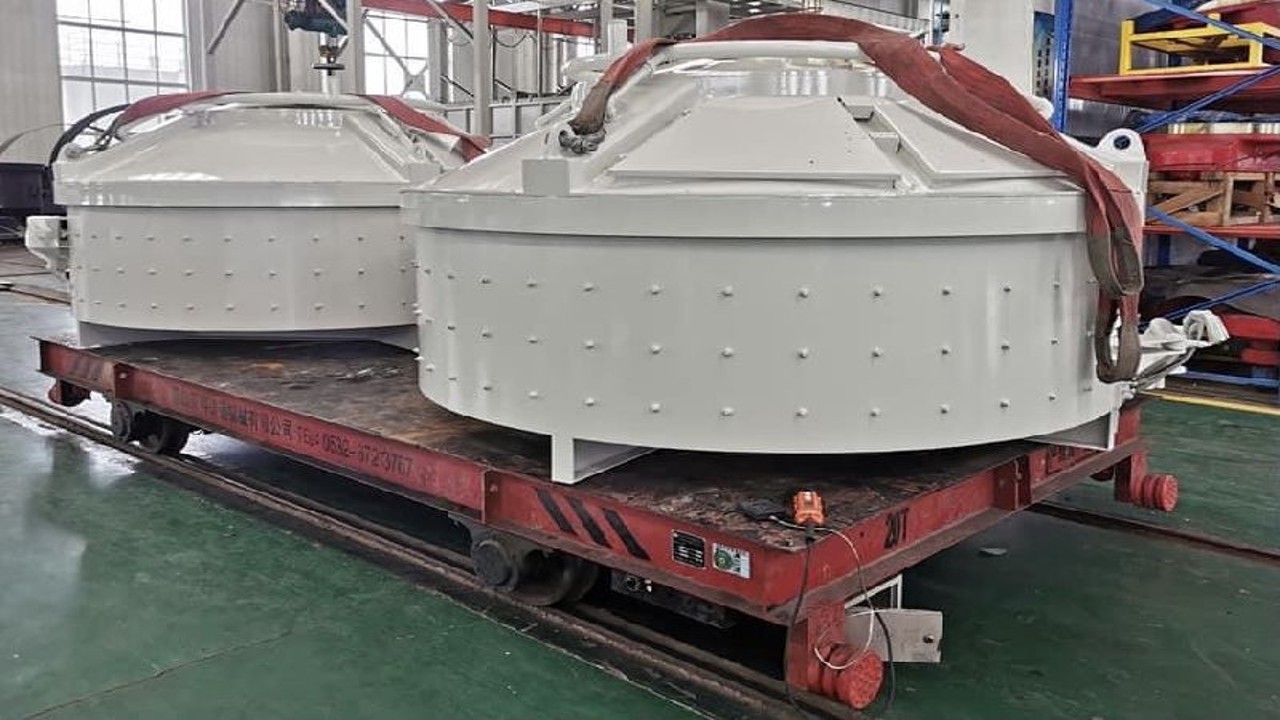
Working Principles of Concrete Mixer Machines
Concrete mixer machines run on straightforward yet efficient principles. The concrete materials are moved and blended more easily and evenly thanks to the revolving drum or mixing shafts. When the mixing process starts, the drum or shafts rotate at a predetermined speed, successfully blending the elements into a cohesive mixture. The machine may be filled with the necessary components.
Also Read: Concrete Pump: Types, Applications, Pros and Cons, Maintenance, and Cost Analysis
Benefits of Using Concrete Mixer Machines
Numerous advantages that concrete mixer machines provide the boost the general effectiveness and accomplishment of building operations. Some major benefits include:
Time and Cost Efficiency
Concrete mixer devices significantly reduce time and labour by automating the mixing process. The exact mixing prevents material waste, guaranteeing that the manufacture of concrete is economical.
Consistent Mixing Quality
Concrete produced by manual mixing techniques frequently has variable quality. Machines for mixing concrete consistently ensure consistent quality throughout the building process.
Versatility and Adaptability
Machines for mixing concrete can be used for many different types of concrete, including precast concrete, reinforced concrete, and plain concrete. They can also mix other substances like mortar, grout, and even some kinds of asphalt.
Increased Productivity
Concrete mixer machines considerably increase productivity on building sites because they can quickly mix enormous amounts of concrete. This enables shorter project schedules and quicker project completion.
Reduced Manual Labor
The day of physically mixing concrete with shovels and wheelbarrows has long since passed. Concrete mixer machines do not require heavy manual labour, which lessens physical stress and improves worker safety.
Also Read: Steel Beam Retaining Wall: A Sturdy Solution for Structural Stability
Factors to Consider When Choosing a Concrete Mixer Machine
There are several things to consider when choosing a concrete mixer machine for a building project. These elements consist of:
Mixing Capacity
The machine’s mixing capacity ought to match that of the project. Greater mixer capacity may be needed for larger projects to provide a steady supply of concrete.
Mobility
Think about the concrete mixer machine’s mobility. Will it be used to one building site or several? Mixers that are portable or towable offer flexibility and convenience in transportation.
Power Source
Diesel, alternate fuels, or even electricity can be used to power concrete mixer machines. Select the power source that best fits the project’s location and the resources that are available.
Durability and Maintenance
Make sure the machine you use for mixing concrete is dependable and requires little upkeep. Choosing high-quality machinery decreases downtime and lengthens the life of the machinery.
Safety Precautions while Operating a Concrete Mixer Machine
When using any machinery, especially concrete mixer machines, safety must always come first. The following safety precautions should be followed by operators:
- Always put on the proper personal protective equipment (PPE), such as earplugs, safety glasses, and gloves.
- Read the machine’s instruction manual thoroughly and abide by the suggestions.
- Before using the machine, make sure it is positioned on a solid, level surface.
- During operation, keep your hands, clothes, and tools away from rotating parts.
- Only when the machine is turned off should you disconnect the power source and carry out any required maintenance or repairs.
Common Applications of Concrete Mixer Machines
Machines for mixing concrete are used in a variety of building tasks. Examples of typical uses include:
Construction of Buildings and Infrastructure
Concrete mixer machines are crucial for building sturdy and long-lasting structures, from residential constructions to commercial complexes and infrastructure projects.
Road Construction
Concrete is needed often to build pavement, curbs, and other components of roads. Concrete mixer machines make sure that high-quality concrete is always available when needed.
Bridge Construction
Concrete must be accurate and long-lasting for bridges. Machines for mixing concrete give the strength and uniformity needed to build bridges of various shapes and sizes.
Concrete Production Plants
Machines for mixing concrete are widely employed in facilities that manufacture significant amounts of the material for a variety of building projects.
Precast Concrete Manufacturing
Concrete mixer machines are essential for the manufacturing of precast concrete components including beams, columns, and panels. They make sure that the concrete is mixed precisely to fulfill the standards.
How to Properly Maintain a Concrete Mixer Machine?
For concrete mixer machines to work at their best and last a long time, regular maintenance is essential. Here are some upkeep suggestions:
Regular Cleaning
After every usage, properly clean the mixer to get rid of any leftover concrete. This increases the machine’s life and stops hardened concrete from impacting subsequent mixes.
Lubrication and Greasing
To decrease friction and guarantee smooth operation, lubricate the mixer’s moving components, such as the drum or shafts, on a regular basis. According to the manufacturer’s instructions, grease the bearings.
Inspection and Repair
Check the machine often for any indications of wear, damage, or missing parts. Address any problems right once and make any required repairs or replacements to stop additional harm.
Conclusion
By making the concrete mixing process more efficient, concrete mixer machines have revolutionized the building sector. For building projects of all sizes, their effectiveness, adaptability, and capacity to provide constant concrete quality make them useful tools. Construction experts may increase production, save expenses, and guarantee the success of their projects by selecting the correct kind of concrete mixer equipment and following regular maintenance procedures.
Frequently Asked Questions – FAQs
Can a concrete mixer machine be used for other materials besides concrete?
Yes, Depending on the machine’s design and capabilities, concrete mixers can also be used to mix other substances including mortar, grout, and some kinds of asphalt.
How long does it take to mix concrete in a concrete mixer machine?
Depending on the type of mixer and the needed consistency of the concrete, the mixing time may change. A homogenous mixture may usually be achieved in 1 to 5 minutes.
Can a concrete mixer machine be operated by a single person?
Yes, Many concrete mixer machines are made to be operated by one person. Larger mixers, however, can need more help loading and unloading..
Are concrete mixer machines available in portable sizes?
Yes, There are small, lightweight portable concrete mixer machines available. They are appropriate for modest to modest-sized building projects or sites with constrained space.
How much does a concrete mixer machine cost?
A concrete mixer machine’s price might change based on elements including capacity, features, and brand. Small mixers can cost a few hundred dollars, while bigger, high-capacity devices might cost several thousand dollars.
